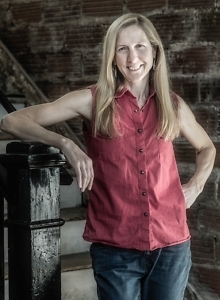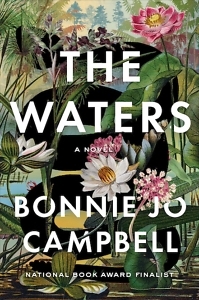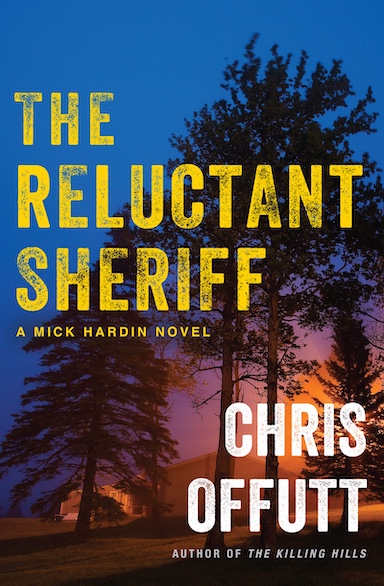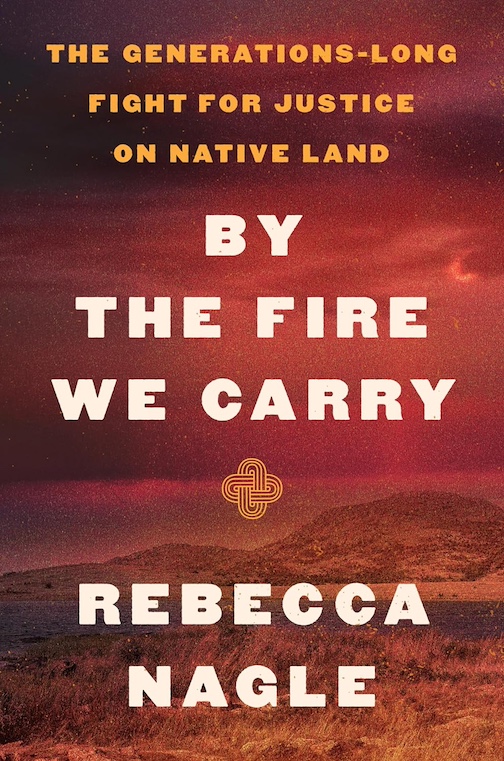People and Place
Bonnie Jo Campbell’s The Waters is a story of metamorphosis
Told in the cadence of a fairytale, Bonnie Jo Campbell’s new novel, The Waters, follows a family of women — the Zooks — who live cloistered on M’sauga Island, a lush enclave suspended in time, named for the poisonous massasauga “muck rattler” snakes that lurk in its grasses. Surrounding the island is a carnivorous marsh known as the Waters, and beyond the Waters lies Whiteheart: a rural Michigan town which the Zooks call “Nowhere.”

The Zook family consists of the elderly matriarch known as Herself; her three adult daughters, Primrose, Maryrose, and Rose Thorn, all of whom have moved away from the island; Rose Thorn’s daughter Dorothy Rose, also called Donkey; and Herself’s late mother, Baba Rose, whose spirit is housed in a perpetually burning hearth. While the people of Nowhere watch soap operas and go to the shooting range, the women on M’sauga Island boil their water on the stove, collect roots and herbs to make healing elixirs, and bathe in sulfur pools.
The Waters opens with a hand-drawn map and a detailed description of the geography of the nearby town of Whiteheart intertwined with an overview of the Zooks’ lore, the first signal that Campbell’s novel is a story about place as much as people, reminding us that land is inextricable from its inhabitants, human and nonhuman alike.
Within this exposition, there is a particular focus on the hard-working men of Whiteheart — whom the Zooks call “brutes”— and their near messianic worship of the capricious, beautiful, “lazy” Rose Thorn. These men, single and married alike, crave Rose Thorn’s presence at parties and the local bar “the way they needed the sun to rise, even if it wasn’t going to shine on them.” Yet they continue to judge her character, especially her choice not to work the land and her propensity to leave town at a moment’s notice, even after her daughter is born. “She had not been a responsible mother — they all knew that — and now she just sat out in the road in short-shorts inviting outrageous behavior,” one man thinks. “So why did he want to be near her right down into the marrow of his bones?”
Early on, we learn about Donkey’s birth and the mystery of her father’s identity. Then time skips. Now, Donkey is 11, and Rose Thorn has fled again, leaving Herself to raise Donkey alone, Donkey to pine for her mother, and the brutes of Nowhere to languish in Rose Thorn’s absence, until they begin to take their anger out on Herself.
 In many ways, The Waters is a coming-of-age story, with the book’s omniscient narrator often trained on Donkey’s development into a girl who fixates on mathematical theories and cares deeply for the island’s muck rattlers. She is startled by her own rage and yearns to understand where she came from. In scenes reminiscent of Frances Hodgson Burnett’s The Secret Garden or Johanna Spyri’s Heidi, we see Donkey explore her magical surroundings, uninhibited by parental supervision. But without guidance, Donkey stumbles upon distressing family secrets and witnesses worldly injustices, causing the magic of the island to fade, or at least to flicker. “She let herself try to see the place the way [her aunt] described it,” Campbell writes, “as a dangerous, primitive place of sinister, venomous creatures and festering infection and rot.”
In many ways, The Waters is a coming-of-age story, with the book’s omniscient narrator often trained on Donkey’s development into a girl who fixates on mathematical theories and cares deeply for the island’s muck rattlers. She is startled by her own rage and yearns to understand where she came from. In scenes reminiscent of Frances Hodgson Burnett’s The Secret Garden or Johanna Spyri’s Heidi, we see Donkey explore her magical surroundings, uninhibited by parental supervision. But without guidance, Donkey stumbles upon distressing family secrets and witnesses worldly injustices, causing the magic of the island to fade, or at least to flicker. “She let herself try to see the place the way [her aunt] described it,” Campbell writes, “as a dangerous, primitive place of sinister, venomous creatures and festering infection and rot.”
After a brute’s act of violence leaves Herself unable to cook, craft medicines, or tend to the land, Dorothy is forced to become a caretaker, requiring her to grow up even faster. The incident also draws attention to Herself’s age and declining abilities, raising the question: What will become of M’sauga Island if Herself cannot man the helm?
Campbell deftly weaves Donkey’s metamorphosis with that of the community for which her family serves as a foil; it could be said that The Waters is really Whiteheart’s coming of age story. Throughout the novel, the town’s older generations reckon with corporations rendering their agricultural economy obsolete, chemicals tainting their land, and traditions being lost to time. “Wasn’t that the history of civilization?” Campbell writes. “That the old gods had combined into one great God? Titus Clay’s father, Titus Clay Sr., that great man, would eventually farm almost every field on this side of unincorporated Whiteheart, harvesting corn and soybeans with specialized machinery he would never finish paying for.” But slowly, the Whiteheart community adapts.
The narrative takes a particular interest in how these changes impact Whiteheart’s gender roles, noting how the farms’ deterioration has spurred a more gendered division of labor and observing how a man’s furtive shame can easily be channeled into cruelty. A recurrent theme is Herself’s controversial ability to provide abortions for the women of Whiteheart, another source of the brutes’ animosity toward her, particularly after the hiring of the community’s new, puritanical reverend.
At first, the men of Nowhere appear to merely be the book’s ensemble, a quirky cast of characters included to color the world. As the story goes on, however, their collective role becomes increasingly significant. Thus, while on its face, The Waters is a story about women, the book boldly tackles one of feminism’s most prominent counterarguments: What about men?
Campbell’s answer is a hopeful one: Men and women need one another, must acknowledge this need — for learning to care and be cared for will liberate us all. Like all myths, The Waters has a moral. When the men come to Rose Thorn’s aid near the end of the story, Campbell writes, “Their tenderness toward her allowed them to be tender even with one another.”
Just as the novel nimbly avoids pigeonholing any of the Zook women into the categories of good or bad, so does it treat its male characters with the utmost empathy and grace — without absolving the men for causing others pain.
In this way, Campbell has achieved an impressive, rare feat: Her coming-of-age tale contains full-fledged adult characters. Her piece of women’s lit illuminates the deepest insecurities of men. By reading The Waters, anyone and everyone stands to learn something about themselves and the world — and how to become more tender.

Bianca Sass, a Nashville native, is a writer, director, and scholar whose work probes the intersection of the personal and the political. She’s a recent graduate of Amherst College, where she majored in English and Law, Jurisprudence, and Social Thought, as well as wrote and directed many theatrical productions. In 2023, Bianca workshopped her play Babydoll at the Looby Theater in Nashville. Bianca is now based in Boston.


